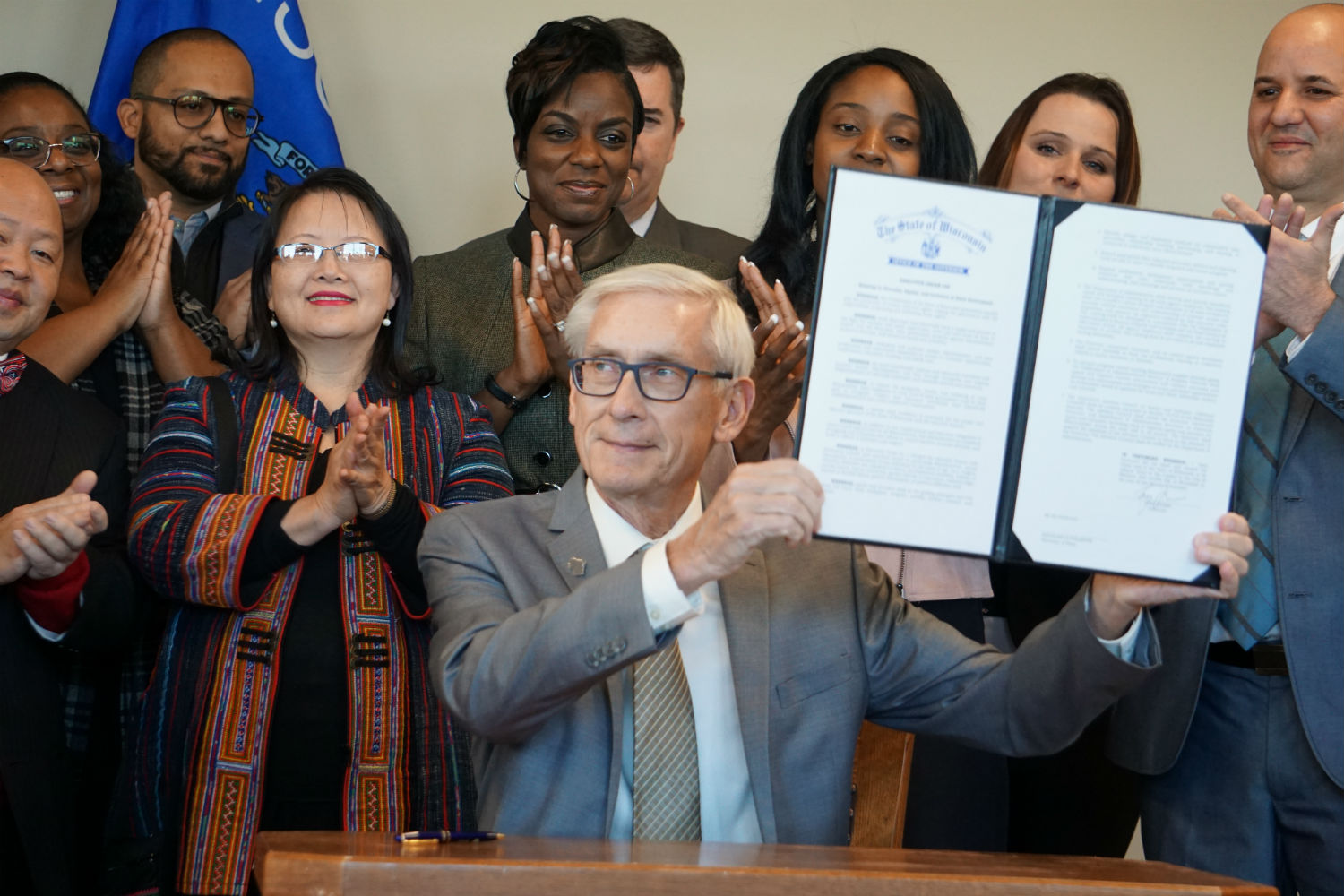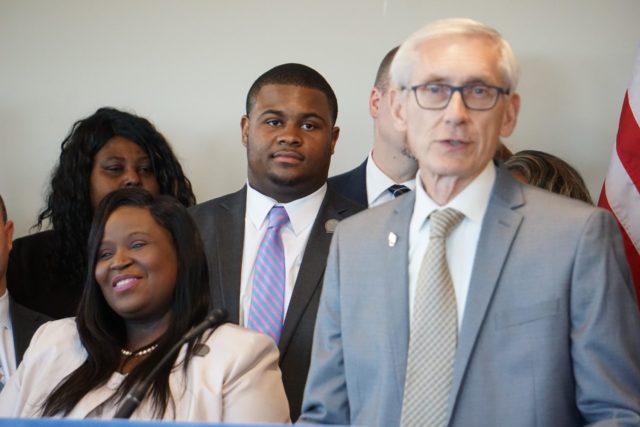Governor Tony Evers today signed an executive order committing state government to more intentional engagement with issues of diversity, equity and inclusion. The order, signed in an event in Madison with Lt. Governor Mandela Barnes, several cabinet secretaries, state legislators and stakeholders, creates a Council on Equity and Inclusion and directs every state agency to create a diversity and inclusion plan, report annually on progress toward diversity and inclusion goals, and provide diversity and equity training for all state employees by the end of next year.
An accompanying bill, sponsored by Rep. Shelia Stubbs (D-Madison) in the Assembly and Sen. Lena Taylor (D-Milwaukee) in the Senate, would provide five full-time staff for the Council on Equity and Inclusion, and one full-time diversity and equity coordinator in each agency of the cabinet. The bill is being circulated for cosponsors today.

“This is an extraordinarily important executive order for me personally,” Evers said. “Born and raised in a small town in Wisconsin, and 99.9% of the people that lived in that town looked exactly like me.”
Evers said the order will push state agencies to look at their work through “a culturally competent lens.”
“We’re taking an approach that ensures that no matter who you are, where you live in this state, you will have the tools that you needed to succeed and thrive,” he said. “I want to make clear that my administration and I are committed to making Wisconsin a more equitable, just and inclusive place for everyone.”
Barnes pointed to a recent study that found Milwaukee to be the worst city in the nation for Black people, and Racine second-worst.
“We can probably look at stat after stat and the same thing will hold true. People of color are trying to succeed in a broken system that prevents them from doing just that,” Barnes said. “And as a community, it’s important to have all of our leaders, all of our elected officials, and all of our stakeholders at the table to make sure that equity and inclusion is a part of all the conversations that we have. And it’s also important that these values are reflected throughout our administration, through state agencies and employees all throughout Wisconsin.”
Stubbs said the executive order and her accompanying legislation would address “the urgent crisis of racial disparities in our state.”
“The issues of racial disparities and inequity in Wisconsin has been boiling for years and we have reached a very dangerous, a very troubling tipping point,” she said. “Wisconsin has the most extreme racial disparities in our nation. Individual and systemic racism, discrimination and biases perpetrate and exacerbate disparities in access to economic opportunities, employment, education, housing and health care. Wisconsin can do and must do better to ensure that our state government protects against oppression, promotes diversity and advances equity and inclusion.”
She said the bill would create 27 new positions across the executive branch, all “designated 100 percent on equity work.”
The bill mirrors a similar measure Stubbs introduced as a member of the Dane County Board of Supervisors in 2014. That resolution created a staff team to address equity and inclusion throughout every county department.
“If it’s gonna work, why not replicate it to the state?” she said.
She said she can already anticipate one of the difficulties of Evers’ executive order.
“I noticed it was very difficult to get equity plans turned in on time,” she said. “So I wanted to make sure with this new work that the equity plans are very clear that we need them annually and we’re giving a deadline.”
The executive order will be administered by the Bureau of Equity and Inclusion, within the Department of Administration’s Division of Personnel Management.
Initial estimates by the Legislative Fiscal Bureau say the bill would cost $982,700 over the next two years.
Taylor and Stubbs both said they expect bipartisan support.
“I would hope that whether it is (Senate Majority Leader Scott Fitzgerald or (Assembly Speaker) Robin Voss, who represents the area that is second in the nation for the worst place for African Americans to live, I would hope that as soon as they are aware of the legislation that they’ll be running to our doors, knocking them down to say, let’s do what is right,” Taylor said.




























